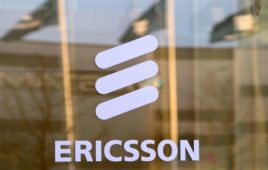The back and forth legal battle between Qualcomm and Apple rages on, as the U.S. International Trade Commission (ITC) has voted to launch an investigation into the former’s patent infringement claims against the iPhone vendor.
In early July, Qualcomm launched a patent infringement lawsuit in which it alleged Apple is using the company’s chip technology “unlawfully” and “unfairly.” The complaint requested an import ban on certain iPhones, asserting the devices shouldn’t be allowed into the United States if they infringe on Qualcomm’s patents.
The ITC is picking up on that thread, saying it will investigate whether Apple’s mobile devices, like the iPhone 7, and its component parts, like baseband processor modems, infringe on Qualcomm’s patents in violation of section 337 of the Tariff Act of 1930. The case will be assigned to one of ITC’s administrative law judges, who will hold an evidentiary hearing and make an initial decision as to whether Apple violated the law. That preliminary determination will then be subject to review by the Commission.
ITC said within 45 days of commencing the investigation it will set a target date for completion. It could take between 16 and 18 months for the investigation to be completed.
On the news of the ITC’s decision to investigate the allegations, Don Rosenberg, EVP and general counsel at Qualcomm, said the company is “pleased with the ITC’s decision to investigate Apple’s unfair trade practices and the unauthorized importation of products using Qualcomm’s patents.”
“We look forward to the ITC’s expeditious investigation of Apple’s ongoing infringement of our intellectual property and the accelerated relief that the Commission can provide,” he added.
In its complaint, Qualcomm asserted that the company developed six patents over the last four years that extend battery life in movable devices. Qualcomm also claimed that “Apple uses these technologies in their devices but isn’t paying for them.”
This is only the latest twist in an ongoing legal feud between the two companies. The dispute started in January when Apple sued Qualcomm for $1 billion, claiming the supplier abused market powers and demanded unfair royalties.
“Apple believes deeply in innovation and we have always been willing to pay fair and reasonable rates for patents we use,” the company said in a press release. “We are extremely disappointed in the way Qualcomm is conducting its business with us and unfortunately after years of disagreement over what constitutes a fair and reasonable royalty we have no choice left but to turn to the courts.”
Qualcomm argued against the allegations, calling them “baseless” and an intentional mischaracterization of its agreements with Apple.
In May, Qualcomm filed a suit against four Apple manufacturers asking them to pay royalties due and alleging that the companies were under instructions from Apple not to make payments to the chip maker.
“As Apple continues to collect billions of dollars from consumer sales of its Qualcomm-enabled products, it is using its market power as the wealthiest company in the world to try to coerce unfair and unreasonable license terms from Qualcomm in its global attack on the company,” Rosenberg commented at the time. “Our license agreements with Apple’s manufacturers remain valid and enforceable. The manufacturers must continue to live up to their obligations under these agreements and Apple should immediately cease its tortious interference.”
The dispute with Apple has taken a toll on Qualcomm’s bottom line, as the chipmaker reported a 40 percent drop in net income in the second quarter of 2017, which plunged below $1 billion.

